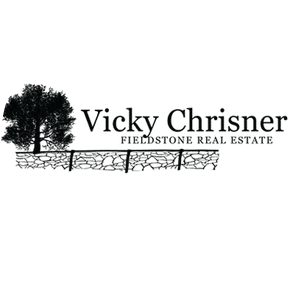You’re thinking of buying a home… and you stumble across information on an REO or foreclosure, and you’re wondering exactly what these terms mean and if you might be able to purchase one and get “a deal”. Well, you’ve come to the right place.
First let’s clarify something… a “foreclosure”, “REO”, “Bank owned home”, in layman’s terms all mean the same thing. These are previously owned homes where owners failed to uphold their end of the mortgage obligation, and the bank foreclosed on the home, and is now trying to sell it. As I have said many times in other parts of this series, the times are a’changin’… they always are. And so, buying an REO in 2014 is quite different from 2008. Bottom line: If you’ve done it before, it might be different.
From the outside looking in, there isn’t a lot that makes this different from a “traditional” resale, but there are some things you should know. To answer your anticipated questions, and tell you things you probably wouldn’t think to ask, I provide some helpful bullet points below:
Bank Owned (Post Foreclosure/REO) Properties:
- In most cases, the home is listed the same way “Bob and Mary” would list their home – through a listing agent. It will be put in the MLS, and shown and marketed the same as any retail sale.
- The buyer’s agent’s commission is paid by the listing agent/seller.
- These days, banks are often doing some repairs to restore the property if it is not in good condition when they acquire it, but this does vary.
- Inspections are allowed, but most sales are strictly “as is”, although I have seen a few cases where the bank was willing to do repairs.
- Buyers should expect to have to wait up to a week after submitting an offer to know if their offer is accepted.
- Contract to close, these are usually 30-45 days.
- Contracts contingent on a home sale are usually not accepted.
- You can purchase with a regular home mortgage, and banks usually allow a financing contingency period. The exception is if the property requires significant repairs in which case the bank may require specific financing, cash/renovation loans or may just refuse to accept government back “non-conventional” financing (i.e. VA or FHA loans).
- Banks aren’t pricing as agressively as they once were, now competing in price with “retail” sales. But, for the reasons you are reading about here, most consumers prefer a “retail” (traditional) sale. With that more discriminating buyer we’re seeing some negotiation in REO pricing if the property sits on the market for a while.
- By targeting homes which might not qualify for government financing, and making cash offers, you may be able to buy at a more reduced rate.
- Banks require that you agree to the terms in their addenda, with NO CHANGES.
- Some banks require certified funds as deposit and/or specify who will hold the deposit.
- REOs only convey “insurable title” not “marketable title. For this reason, buyers are strongly encouraged to use their own title company and not to use the title company the selling bank suggests. As time goes on we are seeing more and more title issues with arrangements where the selling bank’s title company and insurer was used.
- Sometimes, banks will close AFTER you, and you will not get possession until they’ve signed off on everything. This can cause delays, I have seen more than 1 take over 2 weeks. I suggest attempting to negotiate a penalty to the banks should this occur.
If you’re a first time home buyer, and you have talked to a friend who bought a home through a “traditional” sale, the process probably sounds the same… but there are some details and added risks you just need to know about before starting down this road.
Interested in learning more about other types of sales? Start with the beginning of this series by following THIS LINK.
Looking to Purchase a Home in the Dulles Area?
Let’s talk!
Vicky Chrisner
Fieldstone Real Estate
703.669.3142
[email protected]
www.VickyChrisner.com
 By submitting information, I am providing my express written consent to be contacted by representatives of this website through a live agent, artificial or prerecorded voice, and automated SMS text at my residential or cellular number, dialed manually or by autodialer, by email, and mail.
By submitting information, I am providing my express written consent to be contacted by representatives of this website through a live agent, artificial or prerecorded voice, and automated SMS text at my residential or cellular number, dialed manually or by autodialer, by email, and mail.

